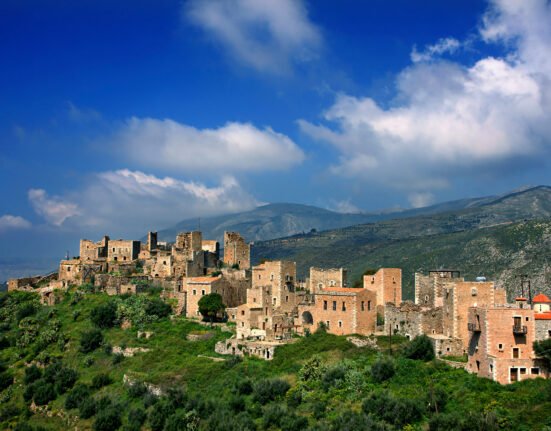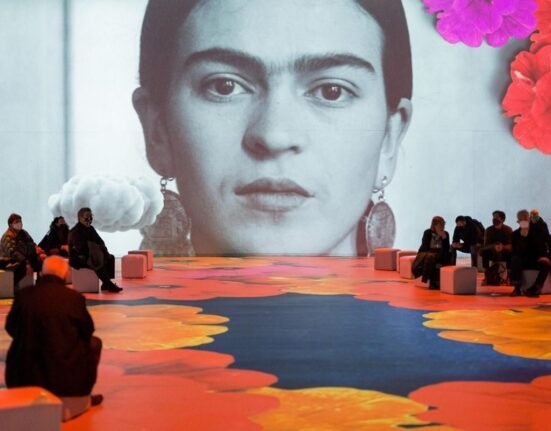That’s it! NEVER, ever…EVER again am I going to stay up until 2 in the morning sacrificing my much-needed beauty sleep, to watch a music contest that seems to focus on everything but music. Honestly, I’m done. I’m sorry, but when a beautiful man like France’s Slimane comes on stage ALONE with no flashy dancers, no extravagant background effects, no butt on display, no chicken-feathered, sex-implying tactics, just incredible raw talent, and unbelievable vocals and doesn’t win hands down, then you know that something is amiss.
Watching one man with just his microphone, occasionally without it, pouring his heart out on the Eurovision stage was truly remarkable. Sadly, this exceptional performance was severely underrated by the judges. It feels almost absurd, and I am officially stepping away from the Eurovision fan base.
Truth be told, this is not the first time that such injustice has been done. Take for example, Italy’s (1958) Domenico Modugno with his song Nel Blu Dipinto Di Blu, better known as Volare, which despite not winning the contest went on to become one of the most successful and timeless songs in music history.

Now why am I venting about a song contest here? Well, in many aspects, this music event, with its diverse musical genres, reflects our society as it unites various nationalities toward a common objective. Just consider this brief comparison.

• Objective: an annual global song contest involving participants from various countries, primarily in Europe.
• Cultural Exchange: a stage for cultural representation through music, allowing each nation to display its musical prowess and style.
• Unity: Despite the competitive aspect, Eurovision fosters unity through music and celebrates diversity.
Expatriate Society:
• Objective: An expat society comprises individuals living away from their homeland, often created to provide support and companionship.
• Cultural Exchange: It serves as a platform for exchanging experiences and guidance on living abroad, aiding members in adjusting to a new environment.
• Unity and Integration: Vital for helping members assimilate into the local culture while staying connected to their origins.

However, before I abandon, once and for all, the Eurovision fan base, let me share some intriguing facts from what was, until last night, among my May highlights! Reflecting on it, May is filled with numerous memorable moments to rejoice in:
• My birthday – May 18
• International Workers’ Day – May 1
• World Laughter Day – First Sunday in May
• World Press Freedom Day – May 3
• International Firefighters’ Day – May 4
• World Red Cross and Red Crescent Day – May 8
• Time of Remembrance and Reconciliation for Those Who Lost Their Lives during WWII – May 8
• Mother’s Day – Second Sunday in May
Anyways, back to some interesting facts about Eurovision.
• The very first contest took place on May 24, 1956, with participation from only seven countries: the Netherlands, Switzerland, Belgium, Germany, France, Luxembourg, and Italy.
• More than 1,500 songs have competed in the Eurovision Song Contest.
• Ireland and Sweden hold the record for the most Eurovision wins, each triumphing seven times.
• Luxembourg, France, the Netherlands, and the United Kingdom have all secured victory five times.
• Cyprus holds the record for the most appearances in the competition without a win.
• Norway is the country that appears most frequently at the bottom of the list.
• The youngest main artist ever was 11-year-old Nathalie Pâque from Belgium. She represented France in Eurovision 1989 with the song “J’ai Volé La Vie.”
• The oldest artist to compete was 95-year-old Emil Ramsauer from the Swiss 2013 band “Takasa.”
• France, Germany, Italy, Spain, and the United Kingdom are collectively referred to as the “Big Five” in the Eurovision Song Contest due to their significant financial contributions to the European Broadcasting Union (EBU). They receive automatic entry into the final of the contest each year.
Greece and Eurovision

• Greece made its Eurovision debut in 1974 with the song “Krassi, thalassa ke t’ agori mou (Wine, sea and my boyfriend)” by Marinella.
• The country’s first and only victory was in 2005 with the song “My Number One” sung by the talented Helena Paparizou.
• Greece has participated 43 times and has never placed last in the competition.
• During the 20th century, Greece achieved only two top-five results: fifth place in 1977 and 1992.
• However, in the 21st century, Greece emerged as one of the most successful Eurovision countries, securing multiple top-ten finishes from 2001 to 2013. Memorable performances include Antique in 2001, Sakis Rouvas in 2004, and Kalomira in 2008.
Another interesting titbit: Russia, which has been banned from the Eurovision Song Contest since 2022 due to its invasion of Ukraine, has won the competition once, finished in second place four times, and secured third place four times. It’s unfortunate, but I agree that countries should not invade others and act like nothing happened. On a different note… one of the main sponsors of the recent Eurovision Contest was Moroccan Oil, as you all noticed. The hair care products are lovely, but did you think it was a Moroccan company? Surprise – it’s actually owned by Israeli entrepreneur Carmen Tal. Just saying….

Having said all this, let me get back to my venting for the 2024 results. In my mind, France was the undisputed winner. Ukraine also had an amazing heartbreaking performance but it relied on extravagant effects as well. So, for me it’s France jusqu’à la fin des temps. I’m so disappointed, never again am I going to watch, read up on, or concern myself in any way with the Eurovision Song Contest, unless you guys are up for getting together and watching the 2025 Eurovision Contest at a common venue, then I can vent to a live audience! Better yet, we could all vent together, united in music! Wouldn’t that be such fun?








